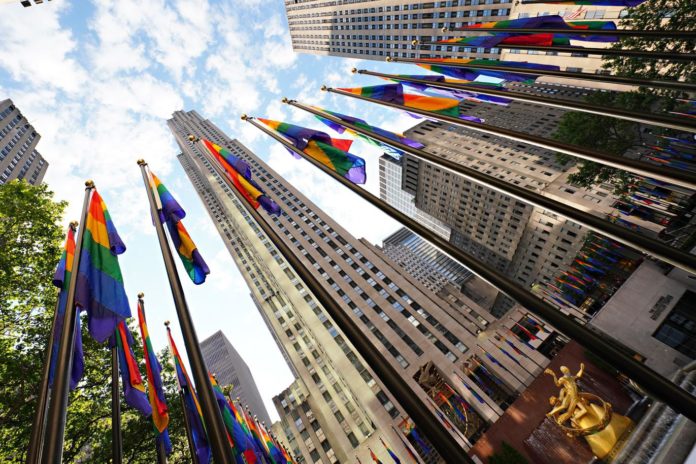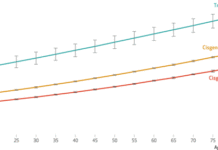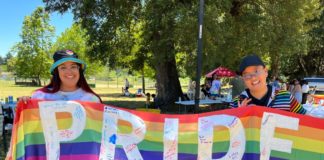
Today is the anniversary of the Stonewall Riots, a catalyst for the LGBTQ Rights Movement (Photo by … [+]
Today is the anniversary of the Stonewall Riots, a catalyst for the LGBTQ Rights Movement, and Pride parades take place across the nation to celebrate. On June 28, 1969, police raided a gay bar in New York City, sparking the Stone Wall Riots that were largely led by LGBTQ people of color and trans women (who today remain among the most marginalized). That incident ignited protests around the country in the push for equal rights.
While progress has been made, such as the Supreme Court ruling in 2020 that a 1964 civil rights law protects LGBTQ+ workers from discrimination and the landmark 2015 SCOTUS decision, Obergefell v Hodges, that legalized gay marriage in all 50 States, the recent Roe v Wade ruling that overturned 50 years of precedent protecting women’s right to abortion access could impact other rights for the LGBTQ community. For example, Supreme Court Associate Justice Clarence Thomas wrote in a solo concurring opinion to overturn abortion rights that SCOTUS, “should reconsider all of this Court’s substantive due process precedents, including…Obergefell,” also saying, “We have a duty to ‘correct the error’ established in those precedents.”
If SCOTUS continues to roll back federal protection of rights previously ruled as protected by the 9th and 14th amendments and instead leaves them up to individual states to determine, the onus lies on state and local lawmakers to protect those rights for their constituents. The Victory Institute, a national organization of openly LGBTQ leaders working to advance equality at all levels of government, reports a 16% increase in LGBTQ Congressional candidates compared to 2020. While just .2% of elected officials identify as LGBTQ, a recent Gallup poll finds that the community makes up 7.1% of the population.
Annise Parker, president and CEO of Victory Institute and the former mayor of Houston, said in a statement, “LGBTQ people have historically been disenfranchised from government positions and this new data reveals the need to continue building momentum behind the Rainbow Wave until we achieve parity. Equitable representation cannot simply be an aspiration, it must be a reality. Our rights depend on it.”
On the anniversary of the Stonewall Riots that amplified the struggle for equality, here are some words of wisdom from LGBTQ representatives from the past and present on the power of representation.
MORE FOR YOU
On having a seat at the table…
“People … see our country and our states moving toward full equality in many respects. When you have legislative bodies that look more like America, that happens.”
Senator Tammy Baldwin, the first Wisconsin woman and first openly gay politician elected to the U.S. Senate in 2012
Admiral Rachel L. Levine, MD, Assistant Secretary for Health, U.S. Department of Health and Human … [+]
On intolerance…
“We have not made progress unless we have all made progress. I have no room in my heart for hatred, and frankly I do not have time for intolerance. My heart is full with a burning desire to help people, and my time is full with working toward protecting the public health of everyone in Pennsylvania. I will stay laser-focused on that goal.”
Admiral Rachel Levine, previously secretary of the Pennsylvania Department of Health, currently Assistant Secretary for Health for the U.S. Department of Health and Human Services, and the first openly transgender federal official in the nation’s history
On being a public servant…
“Look, this job certainly didn’t make any sense in terms of maximizing my income or minimizing my stress or maximizing the comfort of my life. I think it’s a wonderful job to have because I’m able to work to make fundamental changes in society and improve the quality of people’s lives and eliminate and diminish unfairness at various times.”
Former U.S. Representative Barney Frank who became the first member of Congress to voluntarily come out as gay in 1987 and, in July 2012, became the first member of Congress to marry someone of the same sex while in office
Harvey Milk (1930 – 1978), an openly gay member of the San Francisco Board of Supervisors
On the pursuit of potential…
“All young people, regardless of sexual orientation or identity, deserve a safe and supportive environment in which to achieve their full potential.”
Harvey Milk, a member of the San Francisco Board of Supervisors who in 1977 became the first openly gay man to be elected to public office in California
On advancing equality…
“When there is less discrimination for the most marginalized in our society, there is way more equality for everyone in our society.”
Andrea Jenkins, Minneapolis City Council president and the first Black, openly transgender woman elected to public office in the U.S.
White House Deputy Press Secretary Karine Jean-Pierre (Photo by MANDEL NGAN/AFP via Getty Images)
On being a role model…
“What I hope is that young people get to dream big, and dream bigger than they have before, by seeing me stand here.”
White House Press Secretary Karine Jean-Pierre, the first Black and openly gay press secretary








